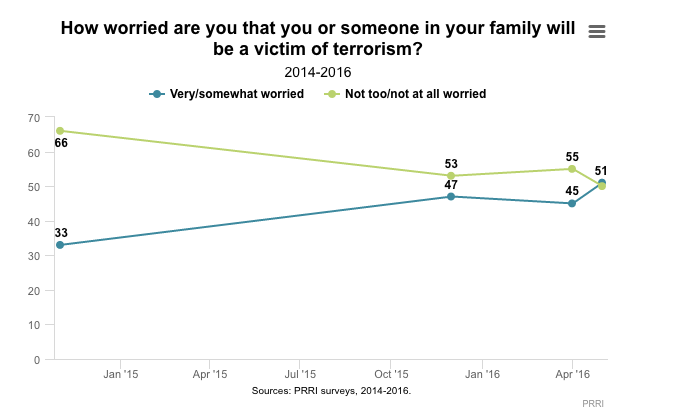This month marks the 15th anniversary of the September 11 terrorist attacks. The attacks—the deadliest on U.S. soil since Pearl Harbor—lead to increasing concerns about the issue of terrorism in the United States. However, until recently, most Americans did not believe they or their family were at risk of being victims of terrorism. According to a recent PRRI survey, that is no longer the case.
To understand the public’s stance on terrorism today, we took a look at findings from the recent PRRI/Brookings survey report. While concerns about terrorism have risen and most Americans hold reservations about Islam’s compatibility with U.S. values, majorities reject bans on Muslims and Syrian refugees.
Concerns About Terrorism Are Up
Republicans (62 percent) and Trump primary supporters (65 percent) are more likely to express concern about terrorism, while only 44 percent of Democrats are at least somewhat worried they or someone in their family will be a terrorism victim.
Most See Islam “At Odds” with American Culture
However, there are notable partisan differences: 79 percent of Republicans say that Islam is not consistent with American values, while about half as many (42 percent) Democrats agree. A majority (55 percent) Democrats do not believe the values of Islam are inconsistent with American values and way of life.
But Most Americans Reject Anti-Muslim Protectionist Policies
For more, see the PRRI/Brookings immigration survey report.
